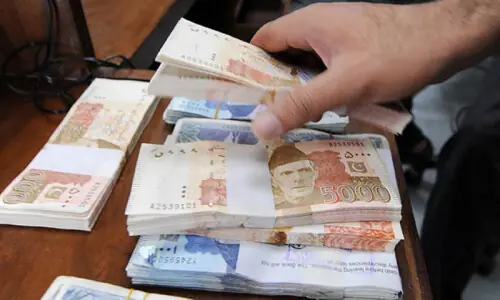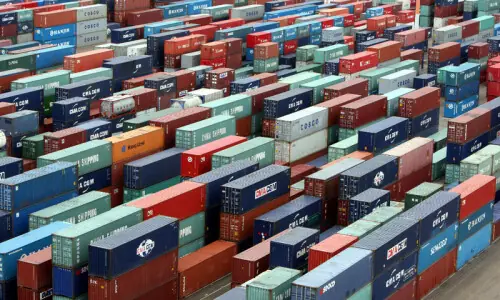KARACHI: Sindh Environmental Protection Agency (Sepa) director general Naeem Ahmad Mughal presided over a meeting here on Tuesday to review environmental pollution and safe disposal of hazardous medical waste in Larkana district.
The meeting discussed installation and operation of four incinerators for the safe disposal of medical waste at various hospitals of the district.
Experts at the meeting presented their proposals and recommended installation of the four incinerators.
The meeting decided that an approval for the installation and operation of the incinerators would be given in due course of time keeping in view the public opinion already taken.
In recent past, an alarming situation had emerged in the wake of a large number of AIDS cases having been reported in Larkana district. The Sindh government had decided to take all possible measures to contain the situation and ensure preventive steps.
It was stressed that safe disposal of hospital waste could help eliminate the risk of spread of AIDS as well as infectious diseases. Experts had since then been examining environmental impact of the operation of incinerators at health facilities.
With the financial support of the World Health Organisation (WHO) and managerial supervision of the health department, the provincial government has decided to install the incinerators.
One incinerator with the capacity of 50kg per hour disposal of medical waste will be installed at the Sheikh Zayed Women’s Hospital. The Ratodero Taluka Hospital and Naudero rural health centre will get on incinerator each with a capacity of 20kg waste disposal per hour.
The place for the installation of the fourth one, with a capacity of 10kg waste disposal per hour, will be decided by the health department later.
Sindh government’s spokesman Barrister Murtaza Wahab, who is also adviser to the CM on law, environment, climate change and coastal development, has directed Sepa to conduct an environmental review of all those projects which are directly related to public interest on a priority basis. He believes that such projects should be approved without any delay after fulfilment of necessary requirements.
It was last year when a number of people, many of them children, were found infected with AIDS in Larkana, Ratodero, Naudero and some other areas of the district. This had created an alarming situation and several thousand people were tested.
Out of 30,000 tests conducted between April and June last year, 876 people were found infected with AIDS and of them 82pc appeared to be children under 15 years of age.
Inquiries into the cause of the spread of AIDS mainly held medical professionals’ carelessness responsible for the situation. The spread was blamed on use/reuse of infected medical instruments — such as syringes and drips — while providing treatment to ordinary patients and also on unsafe disposal of medical waste. A crackdown was also launched against quacks running their clinics in Larkana district and some other parts of Sindh.
During Tuesday’s review meeting, Sepa DG Naeem Mughal asked many questions from the WHO and health department representatives regarding environmental impact of the incinerators’ operation.
WHO representative Dr Sara Salman said that her organisation was working with the health department for the prevention of AIDS spread in Larkana and for an improvement in the healthcare system at hospitals with emphasis on safe disposal of medical waste.
WHO is providing funds for the procurement of medical waste disposal machines and in this regard, an agreement has been signed with a company, Madeline Technologies, which would undertake installation of the machines at the specified health facilities.
The meeting discussed the issue of smoke emission through the chimneys of these incinerators and possible environmental degradation resulting from the process once they were put into operation. The other issues included the method to dispose of the ash created by incineration, provision of proper training to handlers and operators of incinerators and temporary storage of the waste before disposal.
The Sepa DG urged WHO to continue with its administrative oversight and financial support for the procurement, installation and operation of the machines beyond their three-year contract period. He also held out the assurance that Sepa would provide all possible assistance in environmental matters till the completion of the projects.
Under Section 17 of the Sindh Environmental Protection Act 2014, all development projects implemented in Sindh, including the construction of buildings and installation of machines, must be approved by Sepa after conducting their environmental impact assessment (EIA).
Published in Dawn, November 18th, 2020




























